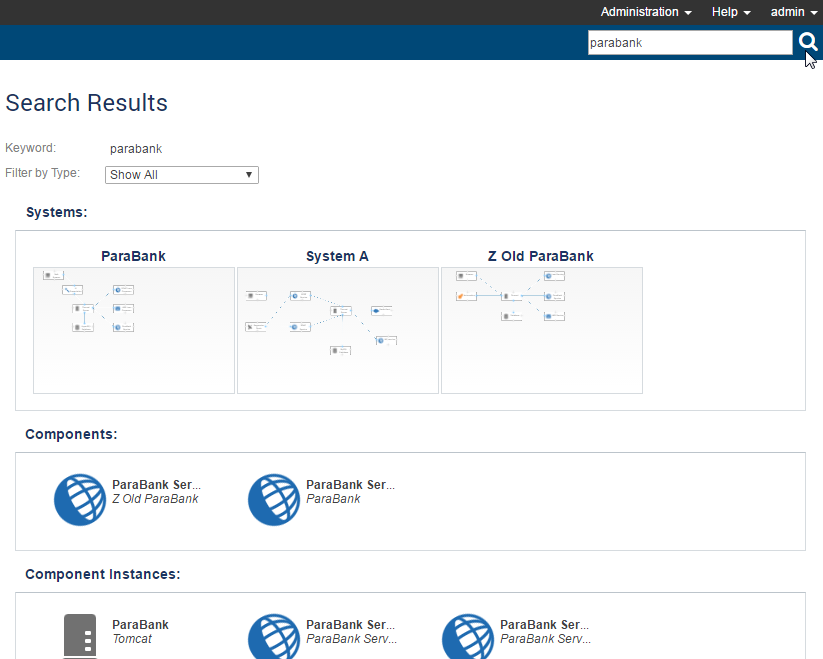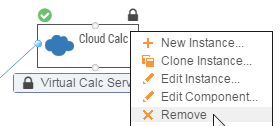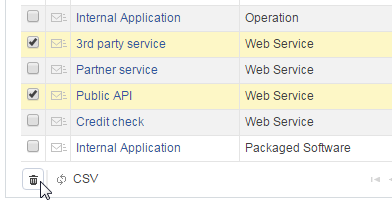There are a number of ways to explore and modify the assets that are available for use in environments and systems.
Searching
At any point, you can search for a specific resource created in Environment Manager (system, environment, component, etc.), API Testing / SOAtest asset (SOAtest server, test scenario/.tst file), or Service Virtualization / Virtualize asset (Virtualize Server, proxy, virtual asset, etc.). The search results page will list matching items. You can filter the results by type and by tag.
Browsing
You can also browse the available assets as follows:
- Choose the various items available from the Environment Manager, API Testing, or Service Virtualization modules. For example, to view all proxies, go to the Service Virtualization perspective and select Proxies.
- Click the link to the item you want to explore.
In the page that opens, you can see all details related to the selected resource.
Tip: Exploring systems and environments
When you're exploring the systems and environments shown in the Environment Manager system tree, it's helpful to leave the information panel open and you click from one item to the next. That way, you can easily review the associated description, tags, variables, etc.
Deleting Resources or Assets
You might want to delete a resource or asset—for example, you might want to remove a Virtualize/SOAtest server that’s no longer hosting your current test scenarios or service virtualization assets.
To remove any resource or asset (systems, environment, components, component instances, servers, etc.):
- Open its details page.
- Choose Delete from the page-level action menu.
Note that if the Delete command is not available, it usually indicates that you do not have permission to remove that resource.
You can also delete components from system or environment diagrams that are in Edit mode by hovering over the component, then selecting Remove from the drop-down menu.
Additionally, in many cases, you can delete items listed in a table. Select the row for the item you want removed (this row will turn yellow), then click the delete button at the bottom left of the table.





